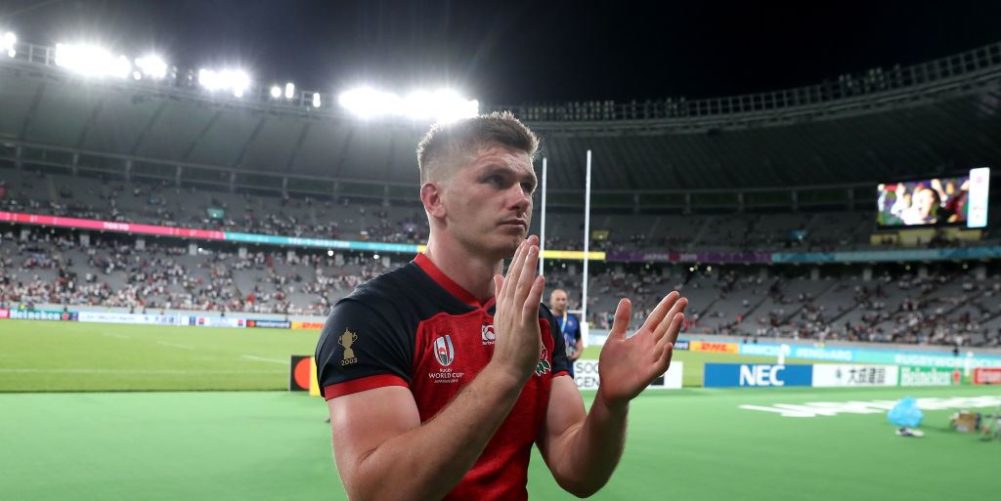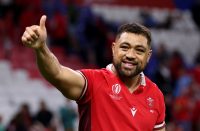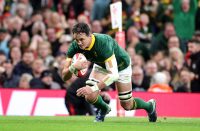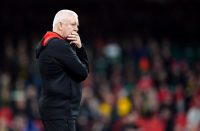EDDIE Jones finds himself planning in the aftermath of a typhoon he wrestles with unresolved selection issues that could be the difference between beating Australia, or returning home as a busted flush.
The cancellation of the match with France has cost him his last chance for experimentation. So now what does he do about Owen Farrell and Billy Vunipola, both established as world class during the high points of Jones’ but so far in Japan shadows of their finest form?
This was highlighted against Argentina, where the Saracens duo were a long way below par. Farrell, who with 841 points is second only to Jonny Wilkinson as England’s most prolific marksman, was on target with only half of his attempts at goal.
This may have been attributable, at least in part, to Tomas Lavinini slamming his shoulder into Farrell’s neck/jaw – although the England skipper insisted that he was not adversely affected. There were four first-half misses, three of them after the ‘hit’, and four successes from four in the second-half after he had more time to recuperate.
It might also explain why attack coach Scott Weismantel said this week that Farrell had told him he felt a bit ‘clunky’ at 12 – as in his timing and movement being laboured — despite the six tries England scored against the Pumas.
This puts Farrell’s 10-12 partnership with George Ford under scrutiny, and rightly so, because since the big warm-up win over Ireland the captain has been less of a fulcrum.
There is little doubt that Ford’s Six Nations rescue act against Scotland, prompting and then scoring the late try to earn a draw, reminded Jones of what he can do.
Yet, while Ford has flourished since then, helped by being on the front foot at 10 against the weaker opposition in the pool, and in the pre-tournament warm-ups, Farrell has been increasingly on the fringes – apart from being on the head-hunters’ hit-list.
England cannot afford for him to be anything but his best against Australia. That leaves Jones with the stark choice of Farrell returning to fly-half at Ford’s expense – which is where he was when the teams last met, helping England beat Australia 37-18 at Twickenham last autumn – or whether he stays at inside-centre.
If it is the latter, Farrell will face the formidable Samu Kerevi, and, if Australia get their fair share of ball, a bruising defensive shift.
Farrell’s lack of clarity at 10 against Wales and Scotland in the Six Nations has clearly resulted in Jones’ decision to put him outside Ford, which is where he was for the Aussie’s first two seasons as Red Rose coach.
However, the cutting edge that England showed during Jones’ Grand Slam baptism in 2016 was underpinned by a pack which was predominantly on the front foot. This was in large part due to the carrying ability of the Vunipola brothers, with both Billy and Mako making mighty contributions.
What happened next, with Billy out of action with injuries for a prolonged period, and Mako also requiring running repairs, was not so flash. Without the heavy brigade the Ford-Farrell combo became too easily neutralised, passing from touchline to touchline, and, with no direct power runners capable of breaking the line, they finished fourth in the 2018 Six Nations.
With Billy shuffling around in a ski boot this week following his ankle injury against Argentina, the conundrum facing Jones is whether without him he has enough physical clout to set Australia on their heels in the way England forwards did in the 2016 summer tour clean-sweep.
So far in this World Cup the big No.8 has not shown the form, urgency, or dominance he did for Saracens in taking the game to Leinster in May’s European Cup final triumph, and now his fitness for the biggest game of his England career is in the balance.
The Wallabies, by contrast, have arrived at the tournament with Isi Naisarani, a 6ft 5ins, 17st 5lb (110kg), Fijian-born bolter of a No.8, who gives them a ball-carrying dimension they have not had since before the last World Cup.
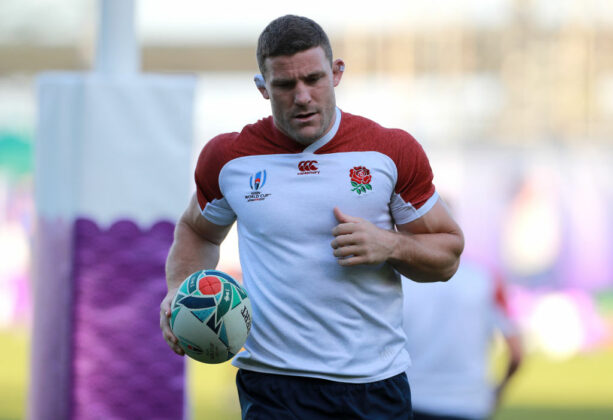
If Vunipola is fit England can meet Naisarani head-on, but Mark Wilson, despite being an accomplished deputy No.8, does not have big Billy’s close-quarter power. However, the overriding factor, irrespective of whether Billy plays, is that rather than using Ford and Farrell to outmanoeuvre the Wallabies, England will need a power game in attack and defence to beat this Australian side.
That means Jones adapting again, and keeping Australia guessing at the same time, by picking Farrell at 10, Manu Tuilagi at inside-centre, the in-form Jonathan Joseph or Henry Slade at outside-centre, and having Joe Cokanasiga – probably off the bench – ramming up the middle.
It also gives Jones the option of a Plan B to bring Ford on after England have drawn the sting from the Australian defensive line.
Jones has made Farrell captain for a reason, not least his winner’s mentality and capacity to rise to the occasion — and he should back him to bring those to bear at fly-half on Saturday.
Australian are more battle-hardened than England, having fought their way through the most competitive group in the tournament to make the last eight after a hard-fought win over Fiji and narrow defeat by Wales.
By comparison England have had a stroll in the park, with two easy games against Tonga and the USA, followed by one made easy by Argentina thanks to Lavanini’s red card.
Jones’s local knowledge is pretty good, having lived in Japan for long periods during his coaching career.
He has had to sit out typhoons before, but even so his calculations almost certainly will not have stretched to the game between England and France becoming the first in World Cup history to be cancelled.
What this force of nature underlines is the importance of being able to adapt to anything that his squad has thrown at them in Japan, and still come out on top.
As Jones put it: “You just have to be able to ride with it, be adaptable, and work out how you can escape with the situations that prevail.”
This ability to adapt is now the acid test for Jones and his assistant coaches, because England’s 2019 World Cup-winning aspirations depend on them getting their preparation for Australia exactly right.
With no further match preparation they will have to tread the fine line between increasing the physical intensity in training to Test level to prepare for the Wallabies, while at the same time ensuring their quarter-final 23 peak in terms of physical and emotional energy in Oita at 4.15pm on Saturday.

